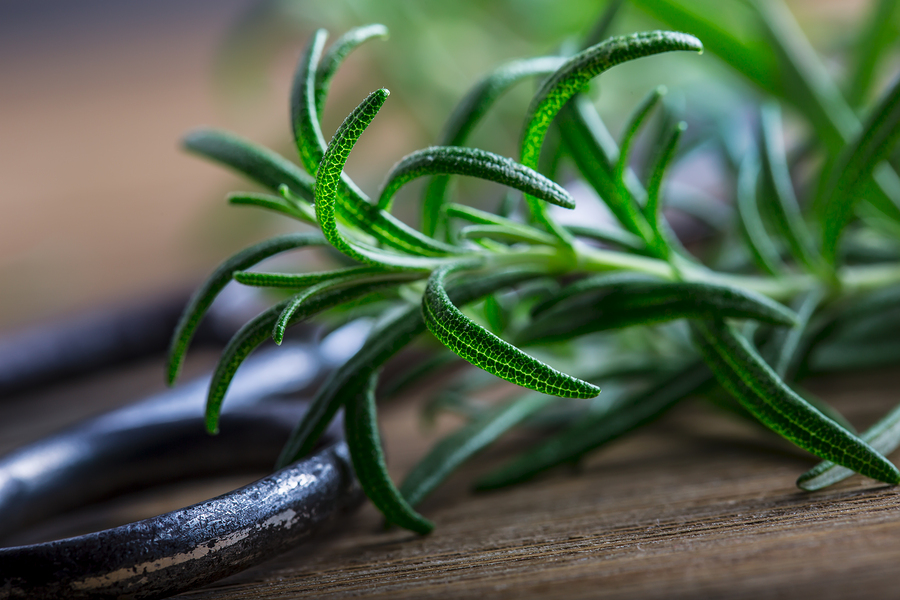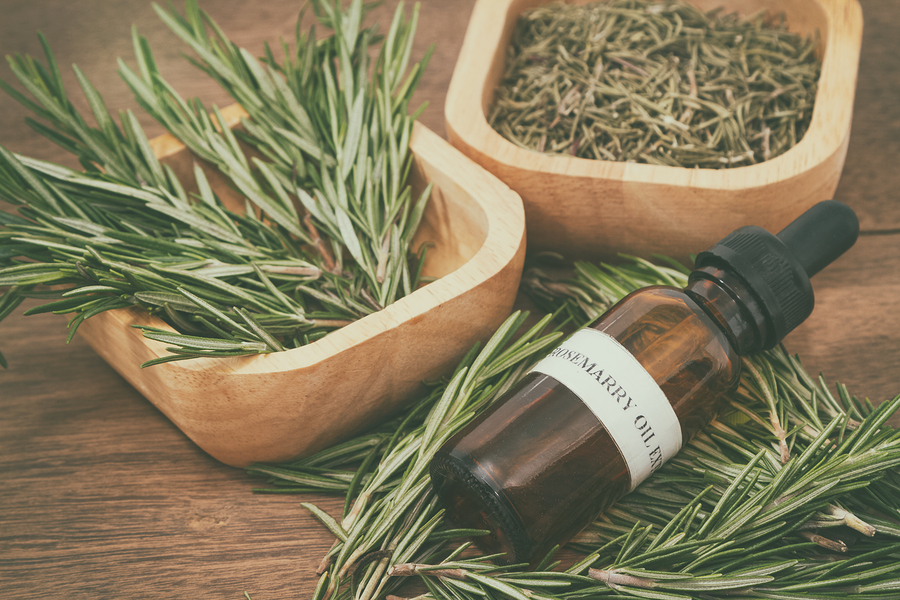- Make It Yourself Lavender Heart-Shaped Bath Bombs!
- 20 Things You Never Knew About “Down There”
- 12 Best Foods For Those Suffering From Arthritis Pain
- 12 Personal Hygiene Mistakes Almost Everyone Makes (Mom Never Told You About #4!)
- 15 Medicinal Plants And Herbs From The Cherokee People
- 12 Mind-Blowing Benefits Of Drinking Coconut Water During Pregnancy
- 12 Outstanding Winter Foods That Won’t Fatten You Up Like A Christmas Turkey
Can Rosemary Really Improve Your Memory?

Photo credit: bigstock.com
Nootropics, or “smart drugs” seem to be all the rage these days. Ever since the release of the 2011 film Limitless starring Bradley Cooper, people have been searching for a pharmacological solution to improving memory and cognitive performance. The good news is that you don’t necessarily have to experiment with risky and unproved drugs in order to experience these benefits. Nature may offer an herb that improves your memory in just a few minutes.
What is in Rosemary?
Rosemary is a type of herb native to the Mediterranean region. Its name comes from the Latin word Rosmarinus, meaning “dew of the sea.” Despite originating from a sunny and warm region, it thrives in colder climates as well and became a popular ingredient in the cooking traditions of many European countries.
For many centuries however, people associate this herb with memory. In Shakespeare’s Ophelia, the eponymous character describes various herbs and their benefits: “There’s rosemary, that’s for remembrance …” (Hamlet, Act IV, Scene 5). It’s common in many cultures to use herbs for healing, mind-altering or health-improving purposes.
Is There Any Scientific Data about Rosemary?
Dr. Mark Ross, head of the Department of Psychology at the University of Northumbria, decided to conduct an experiment to see whether or not rosemary is a good option to use to influence the memory performance of volunteers exposed to it.
Rosemary is most commonly ingested with food, but it has also been used in aromatherapy purposes, where the fumes are inhaled rather than digested. Dr. Ross and his team decided to use rosemary oil with a diffuser to observe its effects.
The experiment involved 150 volunteers aged 65 or older. The participants stayed randomly in one of three rooms. The first room had rosemary oil scent, and the second – lavender oil. The third control room had no scent at all. The study participants were not told about the scenting of the rooms, just that they simply had to sample a vitamin water drink and take some tests.
Objects were also hidden around in the rooms in various locations which they had to remember later. Participants were then instructed to solve a series of complicated word puzzles. While doing this, the participants would be intentionally distracted by research assistants. They asked the participants to perform a specific task, either when a certain event occurred during the test, or after a certain period of time had a passed. For example, one participant was asked, “In seven minutes time from now, can you hand me this book?”. This question was asked while he was busy working on the word puzzles. Little requests like this were designed to test whether the participant would remember to do these tasks while engaged with the puzzles.
Continue to Page 2

Photo credit: bigstock.com
Lavender Vs. Rosemary Test Results
Having finished the study, the researchers found that the test scores of the subjects in the rosemary-scented room were statistically much higher than the other two rooms. The participants who took the test in the room with the lavender scent had the worst scores out of all three groups, while the unscented room produced test scores in the middle range. Why was this?
Lavender promotes feelings of relaxation and calmness, and has a somewhat sedative effect on the mind. People commonly drink lavender tea before bed to tackle insomnia and ensure a good night’s rest. So it is not surprising that the lavender scented room would produce the lowest test scores. It’s difficult to stay focused and maintain concentration when your brain just wants to unwind and relax.
Rosemary, by contrast, seems to produce the opposite effect. It doesn’t really “amp” you up the way a caffeinated beverage might, but the herb’s scent helped the participants who inhaled it preform much better on memory-related tasks, particularly those related to “future memory” (remembering to do something in the future, i.e. reminding someone to make a phone call).
Scientists believe this may be because rosemary contains a compound called 1,8-cineole, also known as eucalyptol. 1,8-cineole may boost the brain’s levels of a neurotransmitter associated with memory called acetylcholine. If this is the case, it would function in a manner similar to drugs designed to treat dementia.
What is Best to Use?
It is important to note how influential the method of taking in the rosemary and lavender may have been in this test. Inhalation is one of the fastest ways to produce any change in brain chemistry. When inhaling the compound, you absorb it through the lungs directly into the bloodstream. That is how, with the blood, it gets to the brain. Conversely, it takes much longer to experience any sort effects during the drug ingestion. It happens because the liver brakes down the molecules before they can enter the bloodstream. If the participants in this study had consumed teas or eaten the herbs, the results might have been different.
READ ALSO: The Top 25 Almost-Magical Uses For Rosemary Essential Oil (#25 Is The Best)
Nevertheless, these are promising results for people looking for a short term boost to their memory. They lend an outstanding credence to the value that aromatherapy can offer. Next time you have an exam or test, you may want to consider diffusing some rosemary oil in the room.
References:
































